
Koblenz: Where the Rhine and Moselle Meet
Koblenz is a charming city in Germany, known for its picturesque landscapes and rich history. Nestled at the confluence of the Rhine and Moselle rivers, Koblenz offers tourists a unique blend of natural beauty and cultural heritage. Visitors can explore the impressive Ehrenbreitstein Fortress, which provides stunning views over the Rhine. The fortress, one of the largest in Europe, has a history dating back over 1,000 years. It is accessible by a fun cable car ride across the river, making the journey as exciting as the destination. The city’s old town is a delight to wander through, with its narrow streets, quaint squares, and traditional half-timbered houses. The Deutsches Eck, or German Corner, is a must-see landmark where the two rivers meet. Here, you can find a monumental statue of Emperor William I, which stands as a symbol of German unity. Koblenz also boasts beautiful parks and gardens, such as the Electoral Palace gardens, perfect for a leisurely stroll. The city’s location in the heart of the Rhine Valley makes it an ideal starting point for river cruises, offering breathtaking views of the surrounding vineyards and castles. Whether you are a history buff, a nature lover, or simply looking for a scenic getaway, Koblenz has something to offer everyone.
Local tips in Koblenz
- Take the cable car to Ehrenbreitstein Fortress for panoramic views of the city and rivers.
- Visit the Deutsches Eck to see the monumental statue and where the Rhine and Moselle rivers meet.
- Explore the old town on foot to fully appreciate the architecture and historic charm.
- Consider a river cruise to view the stunning landscapes and vineyards along the Rhine Valley.
- Check out the local markets for unique souvenirs and traditional German food.
Neighbourhoods in Koblenz
Koblenz: Where the Rhine and Moselle Meet
Koblenz is a charming city in Germany, known for its picturesque landscapes and rich history. Nestled at the confluence of the Rhine and Moselle rivers, Koblenz offers tourists a unique blend of natural beauty and cultural heritage. Visitors can explore the impressive Ehrenbreitstein Fortress, which provides stunning views over the Rhine. The fortress, one of the largest in Europe, has a history dating back over 1,000 years. It is accessible by a fun cable car ride across the river, making the journey as exciting as the destination. The city’s old town is a delight to wander through, with its narrow streets, quaint squares, and traditional half-timbered houses. The Deutsches Eck, or German Corner, is a must-see landmark where the two rivers meet. Here, you can find a monumental statue of Emperor William I, which stands as a symbol of German unity. Koblenz also boasts beautiful parks and gardens, such as the Electoral Palace gardens, perfect for a leisurely stroll. The city’s location in the heart of the Rhine Valley makes it an ideal starting point for river cruises, offering breathtaking views of the surrounding vineyards and castles. Whether you are a history buff, a nature lover, or simply looking for a scenic getaway, Koblenz has something to offer everyone.
When is the best time to go to Koblenz?
Iconic landmarks you can’t miss
Deutsches Eck
Witness the confluence of history and nature at Deutsches Eck in Koblenz, where the Rhine and Moselle meet beneath the gaze of Kaiser Wilhelm I's monument, a symbol of German unity.
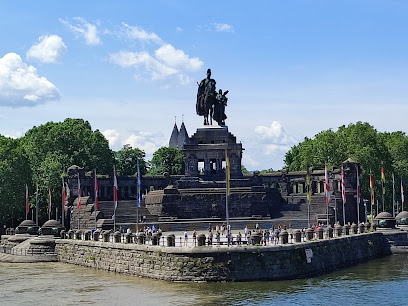
Ehrenbreitstein Fortress
Explore a majestic fortress overlooking the Rhine and Moselle, offering panoramic views, historical insights, and cultural experiences in the heart of the UNESCO World Heritage Upper Middle Rhine Valley.
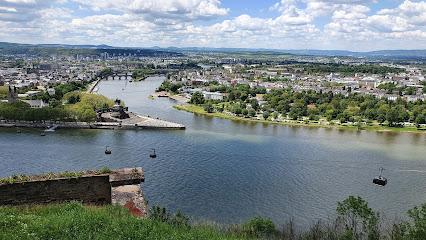
Stolzenfels Castle
Discover Stolzenfels Castle, a stunning Rhine landmark blending medieval history with 19th-century Romanticism, offering breathtaking views and opulent interiors near Koblenz.
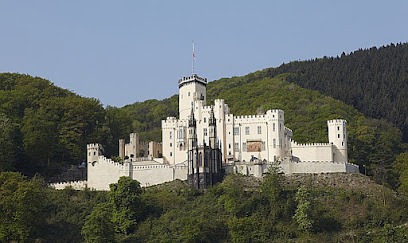
Schloss Koblenz
Discover the grandeur of the Kurfürstliches Schloss in Koblenz: a neoclassical masterpiece with opulent interiors, stunning gardens, and a rich history along the Rhine River.
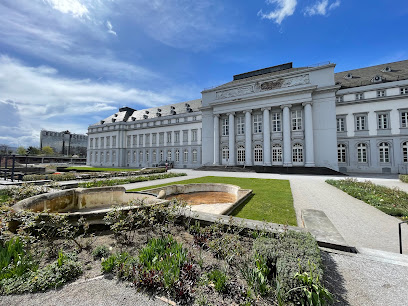
Konrad-Adenauer-Ufer
Stroll along Koblenz's Konrad-Adenauer-Ufer, a scenic Rhine promenade with stunning fortress views, historic landmarks, and vibrant cafes, perfect for experiencing the city's charm.
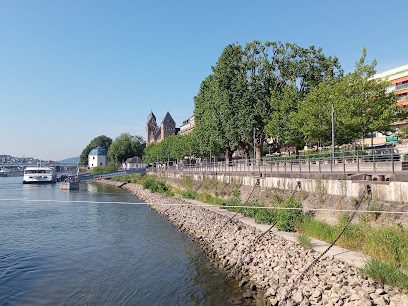
Seilbahn Koblenz - Talstation
Experience breathtaking views of Koblenz and the Rhine Valley with a ride on the Seilbahn Koblenz, connecting the city center to the historic Ehrenbreitstein Fortress.
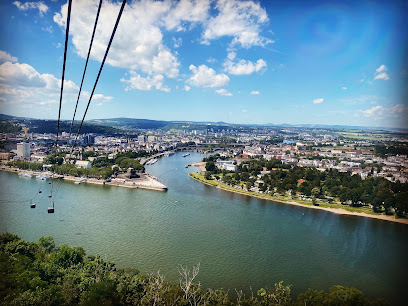
Rhein-Mosel-Halle
Koblenz's premier event venue, the Rhein-Mosel-Halle, offers state-of-the-art facilities for conferences, concerts, and exhibitions in a central location near the Rhine and Mosel rivers.
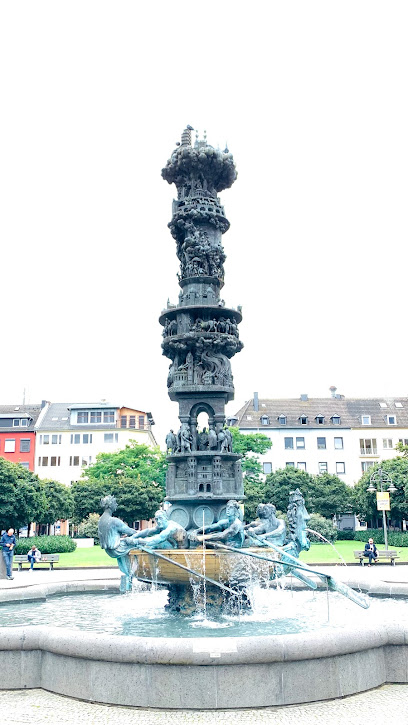
Schängel Fountain
Meet the mischievous Schängel Fountain in Koblenz, a playful landmark embodying the city's wit and history, where a bronze rascal playfully spits water at passersby in the heart of the Old Town.
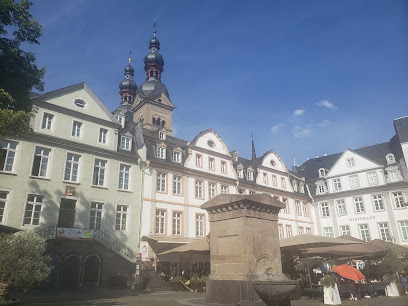
Burg Lahneck
Discover Burg Lahneck, a majestic medieval castle overlooking the Rhine and Lahn rivers, steeped in history, legends, and offering breathtaking panoramic views.
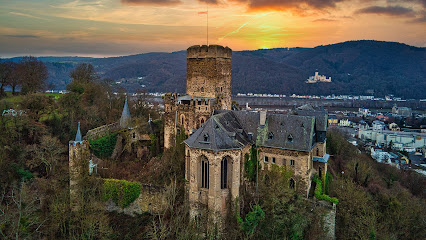
Memorial of German Unity
A historic monument at the confluence of the Rhine and Moselle rivers, symbolizing German unity and offering panoramic views of Koblenz and the Upper Middle Rhine Valley.
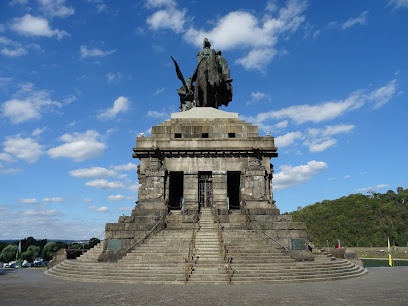
Liebfrauenkirche (Church of Our Lady)
Discover the architectural harmony of Koblenz's Liebfrauenkirche, a historic church blending Romanesque, Gothic, and Baroque styles in the heart of the Altstadt, showcasing stunning stained glass.
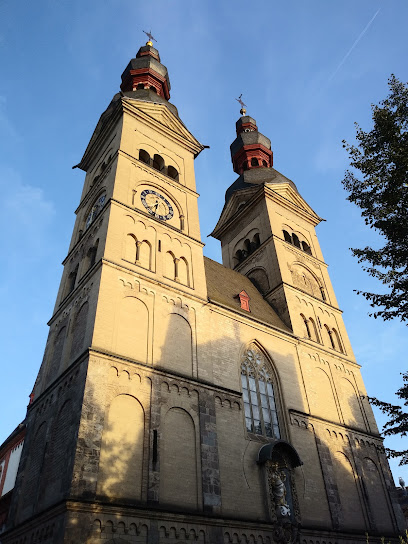
Wehrtechnische Studiensammlung Koblenz
Explore the evolution of military technology from the 19th century to the present day at the Wehrtechnische Studiensammlung Koblenz, featuring armored vehicles, artillery, and more.
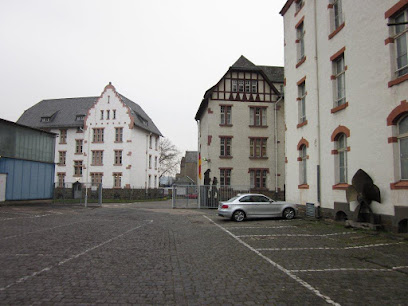
Basilica of St. Castor
Explore Koblenz's oldest church, the Basilica of St. Castor, a Romanesque masterpiece with a rich history tied to the Holy Roman Empire and the shaping of Europe.
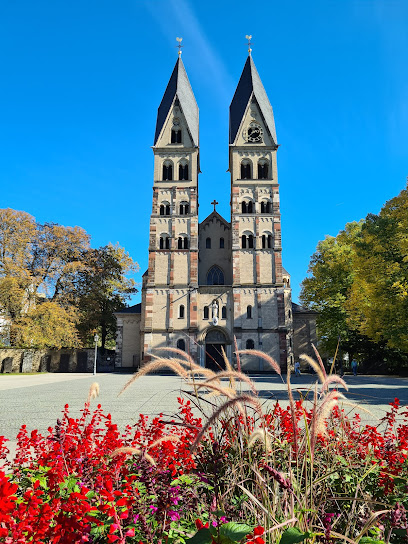
Baldwin Bridge, Koblenz
Cross the historic Baldwin Bridge in Koblenz for stunning Moselle River views and a journey through centuries of German history, connecting you to the heart of the city.
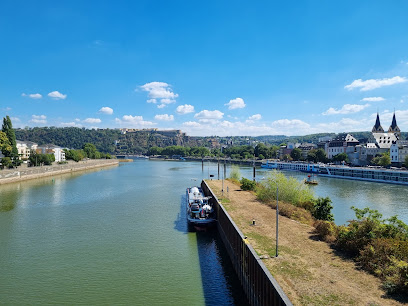
History Column
Discover Koblenz's captivating history etched in stone at the History Column on Josef-Görres-Platz, a vibrant square in the heart of the Old Town, surrounded by cafes and shops.
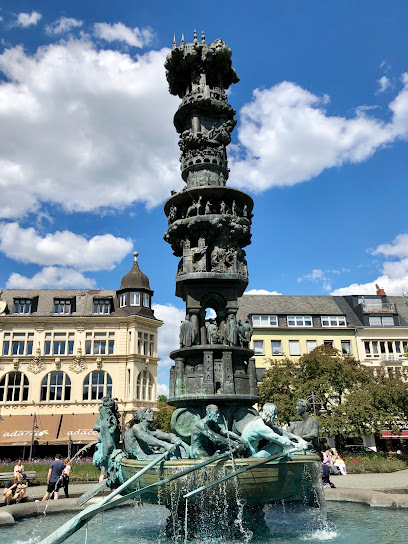
Unmissable attractions to see
Eltz Castle
Experience the magic of Eltz Castle, a medieval masterpiece nestled in the Moselle Valley, rich in history and breathtaking landscapes.
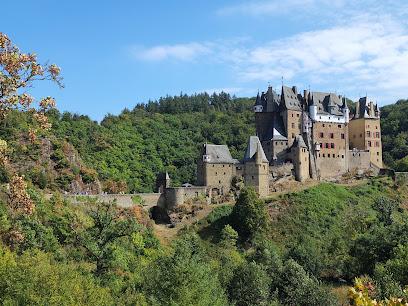
Cochem Castle
Explore the enchanting Cochem Castle, a historical gem overlooking the Moselle River, offering breathtaking views, rich history, and charming gardens.
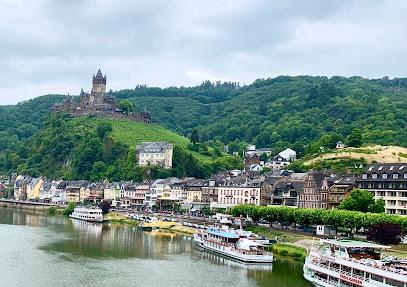
Ehrenbreitstein Fortress
Discover the historical wonders of Ehrenbreitstein Fortress, a cultural hub with stunning views and rich heritage overlooking Koblenz's scenic landscape.
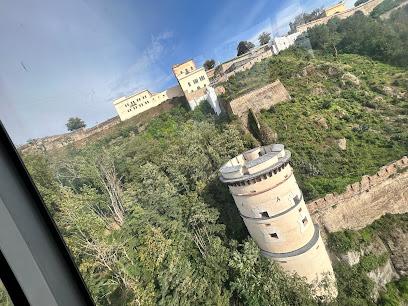
Schloss Drachenburg
Discover the captivating beauty and historical charm of Schloss Drachenburg, a stunning castle in Königswinter, surrounded by nature and breathtaking views.
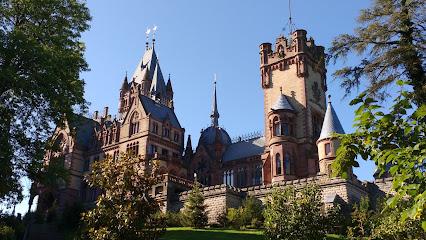
Drachenfels Railway
Experience breathtaking views and rich history at Drachenfels Railway in Königswinter, Germany, a must-visit for nature lovers and adventurers.
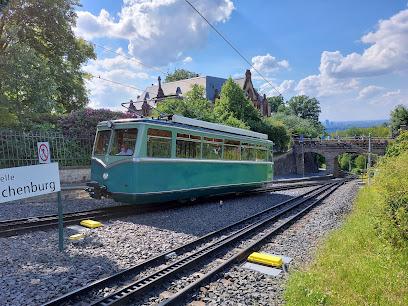
Limburg Cathedral
Experience the breathtaking beauty and rich history of Limburg Cathedral, a Gothic masterpiece in Limburg an der Lahn that enchants every visitor.
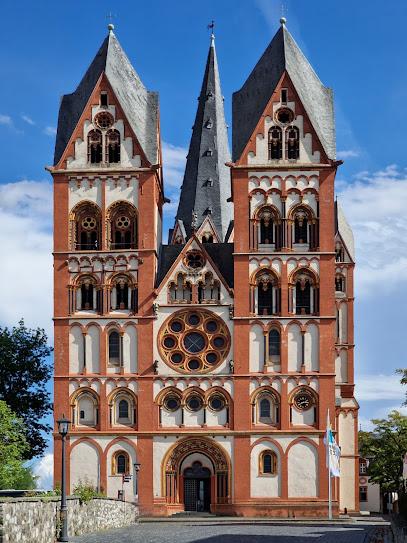
Stolzenfels Castle
Discover the enchanting Stolzenfels Castle, a historical treasure offering stunning views and rich heritage along the scenic Rhine River.
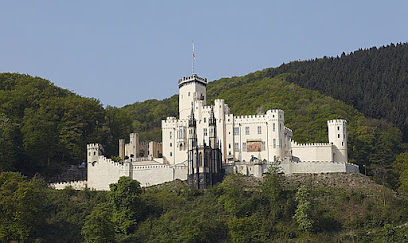
Schloss Koblenz
Discover the historical elegance of Schloss Koblenz, a stunning castle offering breathtaking views, rich history, and vibrant cultural experiences in Germany.
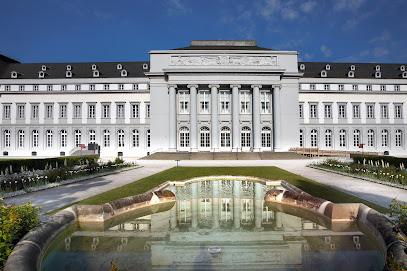
Konrad-Adenauer-Ufer
Discover the beauty and tranquility of Konrad-Adenauer-Ufer, a stunning riverside promenade in Koblenz, perfect for relaxation and outdoor activities.
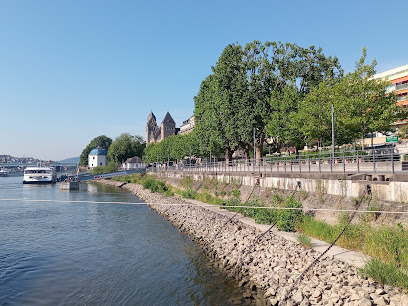
Remstecken
Explore the natural beauty and diverse wildlife of Remstecken Wildlife Park in Koblenz, a perfect retreat for animal lovers and nature enthusiasts.
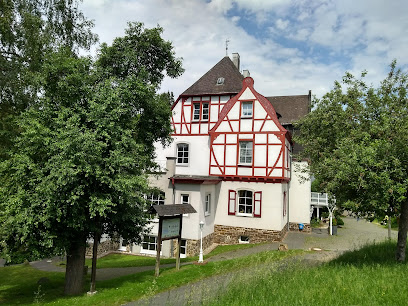
German Museum Bonn
Discover the fascinating world of science and technology at the German Museum Bonn, a must-visit destination for curious travelers and families alike.
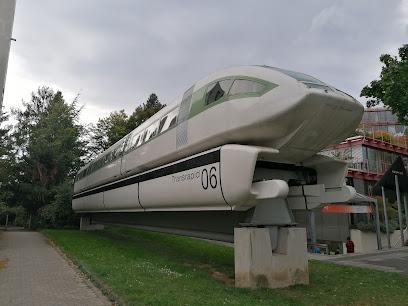
Romantik Hotel Schloss Rheinfels
Discover the enchanting Romantik Hotel Schloss Rheinfels, a historical castle hotel offering luxury, stunning views, and a taste of the Rhine Valley's rich heritage.
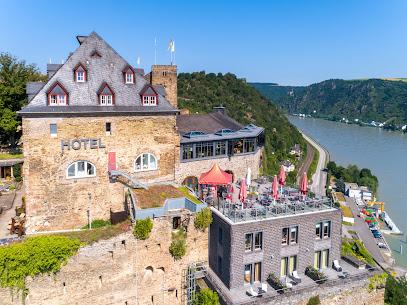
Schängel Fountain
Experience the enchanting charm of Schängel Fountain in Koblenz, a vibrant symbol of local culture and history that captivates every visitor.
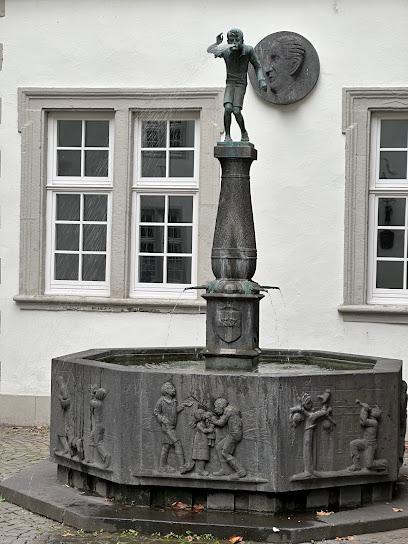
Görresplatz
Explore the vibrant Görresplatz, the cultural heart of Koblenz, surrounded by historic architecture and lively local atmosphere.
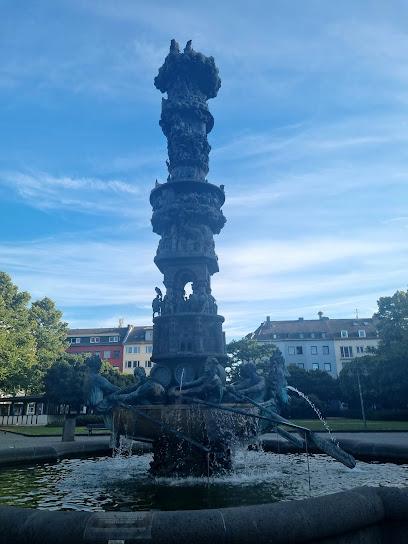
Siegfried's Mechanical Museum
Explore the enchanting world of mechanical music at Siegfried's Mechanical Museum in Rüdesheim am Rhein, a must-visit for tourists seeking unique experiences.
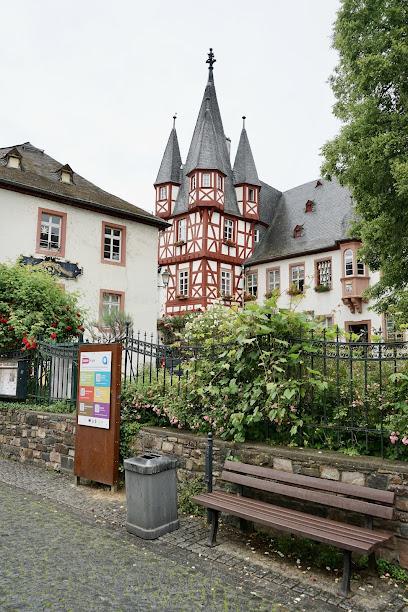
Essential places to dine
Altes Brauhaus
Experience authentic German cuisine and craft beers at Altes Brauhaus in Koblenz – where tradition meets taste.
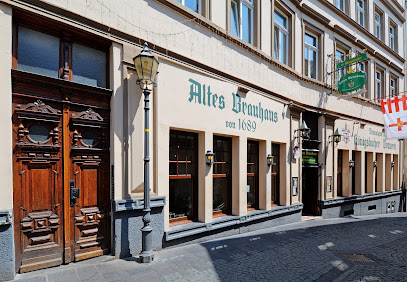
Hans im Glück Burgergrill
Experience gourmet burgers and vibrant atmosphere at Hans im Glück Burgergrill in Koblenz - perfect for all burger lovers!
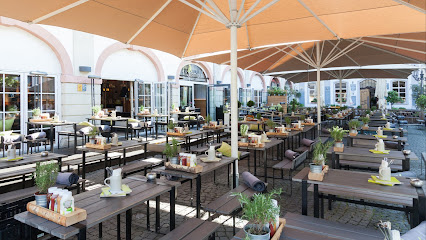
adaccio
Experience authentic Italian cuisine at Adaccio in Koblenz – where flavor meets atmosphere in every bite.
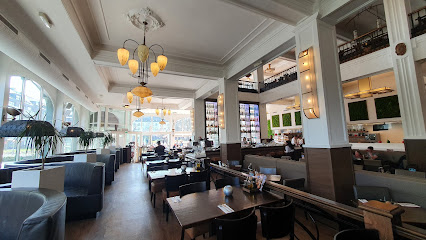
Einstein Koblenz
Discover the vibrant flavors of Einstein Koblenz – your go-to restaurant and cocktail bar for unforgettable dining experiences.
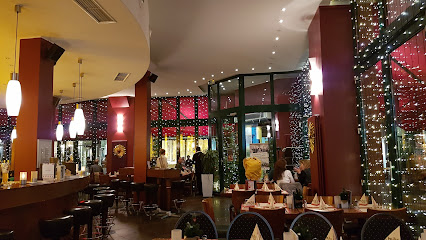
Restaurant Syrtaki
Discover the taste of Greece at Restaurant Syrtaki in Koblenz – where authentic flavors meet warm hospitality.
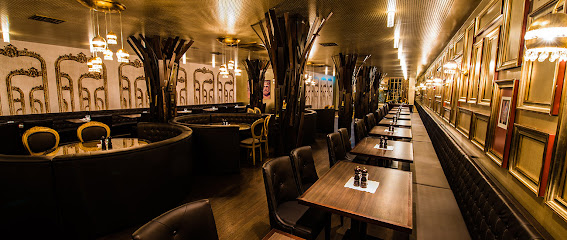
L´Osteria Koblenz
Savor authentic Italian flavors at L'Osteria Koblenz, where hearty meals and warm hospitality await you in the heart of Germany.
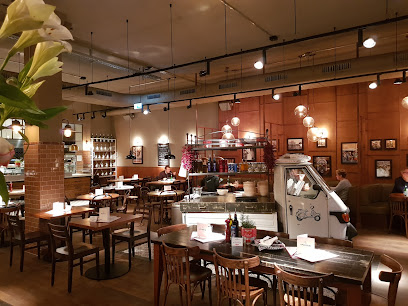
Remo's Koblenz
Experience authentic Italian cuisine at Remo's Koblenz - where every meal is a celebration of flavor and tradition.
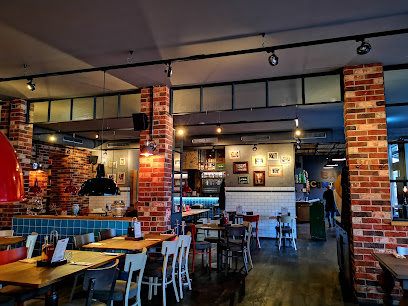
Wacht am Rhein
Experience authentic flavors at Wacht am Rhein in Koblenz – where delectable pizza meets breathtaking river views.
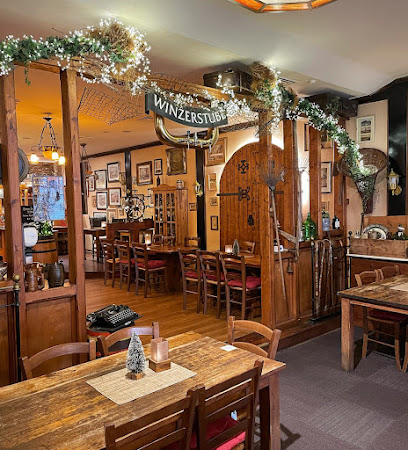
Cowboys Burger Saloon
Experience authentic American flavors at Cowboys Burger Saloon in Koblenz - home to mouthwatering burgers and an inviting atmosphere.
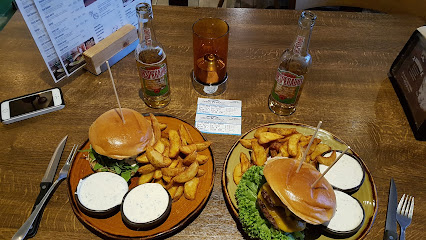
Buffalo Das Steakhaus
Savor exceptional steaks and delightful dishes at Buffalo Das Steakhaus in Koblenz - a must-visit destination for meat lovers.
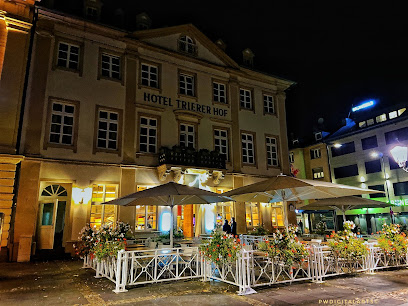
Königsbacher Treff - Koblenz
Discover culinary delights at Königsbacher Treff - Koblenz's favorite restaurant for authentic German cuisine in a vibrant setting.
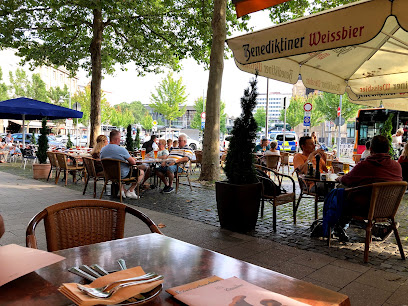
Weindorf Koblenz
Discover authentic German flavors at Weindorf Koblenz - where every meal is a celebration of tradition and taste.
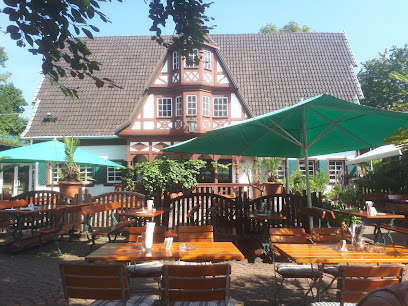
TAQUITOS Cantina Y Bar
Discover authentic Mexican cuisine and vibrant nightlife at TAQUITOS Cantina Y Bar in Koblenz - where every meal is a celebration!
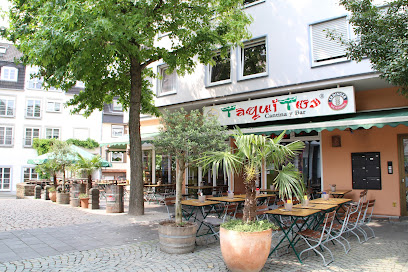
Ristorante Pizzeria La Mamma-Koblenz
Experience authentic Italian cuisine at Ristorante Pizzeria La Mamma in Koblenz – where every dish is a celebration of flavors!
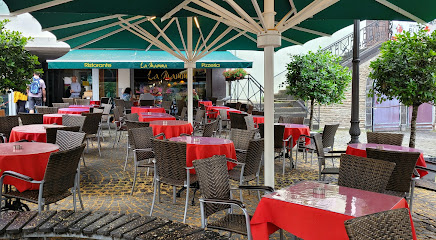
Los Gauchos
Experience the essence of Argentine grilling at Los Gauchos in Koblenz – where every bite tells a delicious story.
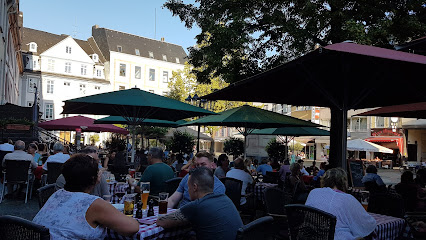
Markets, malls and hidden boutiques
LÖHR CENTER Koblenz
Experience the best of shopping and dining at LÖHR CENTER Koblenz, where modern retail meets vibrant atmosphere.
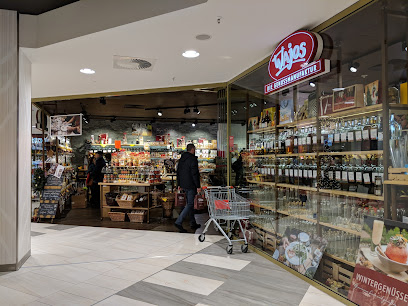
Forum Mittelrhein Koblenz
Explore Forum Mittelrhein in Koblenz – a dynamic shopping destination filled with fashion, dining, and local culture.
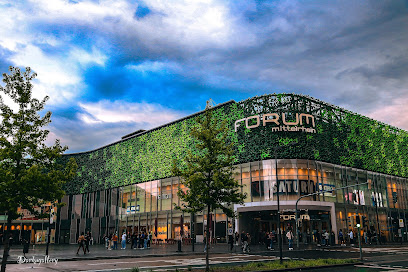
TK Maxx
Discover unbeatable deals on fashion and home goods at TK Maxx in Koblenz, where every visit could lead to your next favorite find.
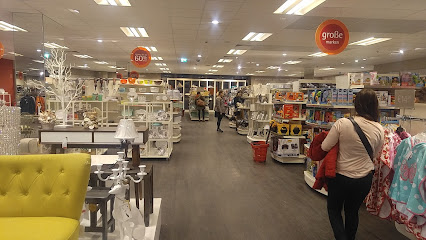
Zara
Explore the latest fashion trends for all ages at Zara in Koblenz, your go-to destination for stylish clothing at moderate prices.
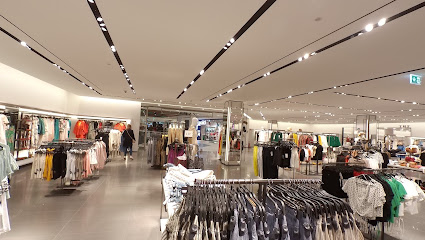
C&A
Explore C&A in Koblenz for stylish, affordable clothing for men, women, and children, blending quality with a vibrant shopping experience.
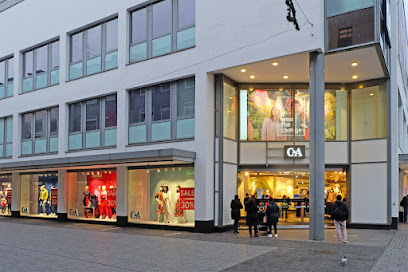
Woolworth
Explore Woolworth in Koblenz, a bustling department store with a variety of products, perfect for shoppers seeking local treasures and trendy finds.
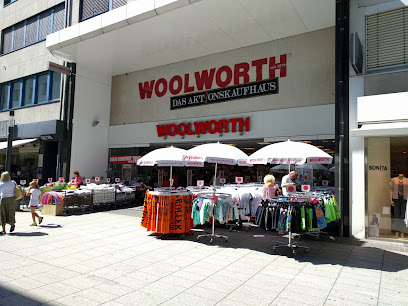
Kunstgässchen Koblenz
Explore Kunstgässchen Koblenz: Your ultimate shopping destination for local treasures and delightful experiences in the heart of the city.
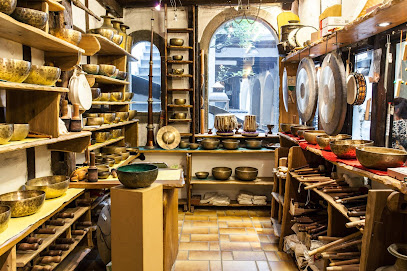
H&M
Explore affordable fashion at H&M in Koblenz, offering stylish clothing for men, women, and children in a vibrant shopping atmosphere.
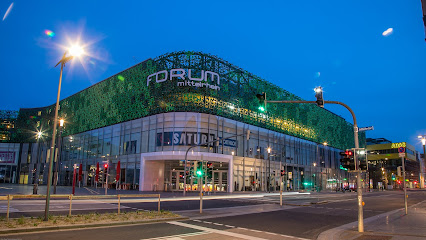
NEW YORKER
Explore NEW YORKER in Koblenz for the latest fashion trends and a diverse selection of clothing and accessories for all ages.
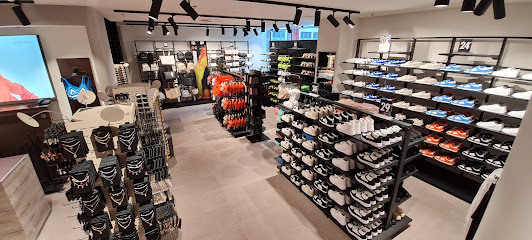
G-Star
Explore G-Star in Koblenz, a premier destination for trendy denim and stylish fashion accessories that cater to all tastes.
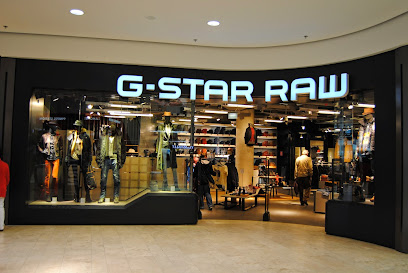
EuroShop
Explore EuroShop in Koblenz for a unique shopping experience filled with diverse gifts and home goods at unbeatable prices.
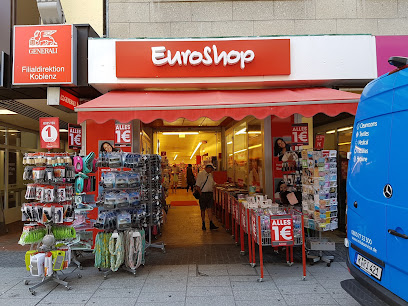
Loot Shop
Discover Loot Shop in Koblenz, a comic book store bursting with vibrant tales, collectibles, and a welcoming community for all comic enthusiasts.
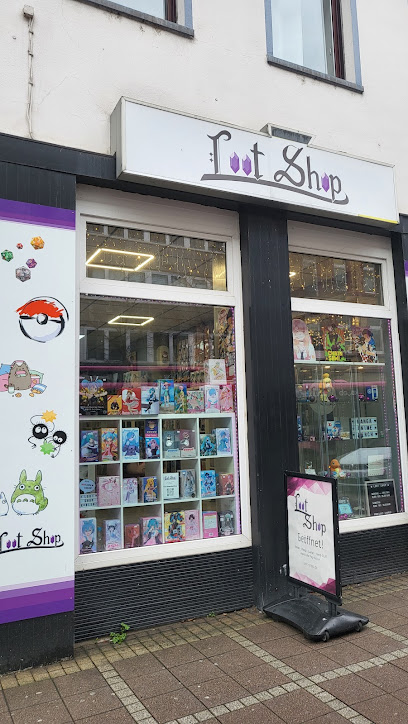
ROOTS - Freestyle im ROOTS
Explore ROOTS - Freestyle im ROOTS in Koblenz: A Unique Fashion Destination for Trendy Clothing, Bags, and Accessories.
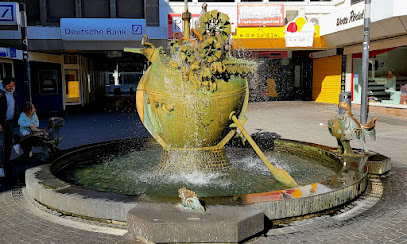
Unicorn Koblenz
Explore the mystical world of Unicorn Koblenz, your go-to metaphysical supply store in the heart of Koblenz, perfect for every spiritual seeker.
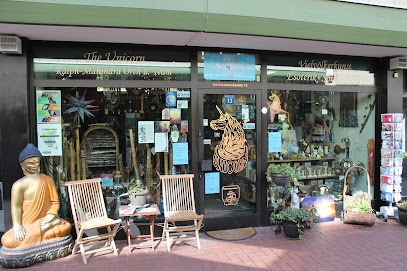
Vanezia Concept Store
Explore unique fashion finds in Koblenz at Vanezia Concept Store, where style and creativity converge for a delightful shopping experience.
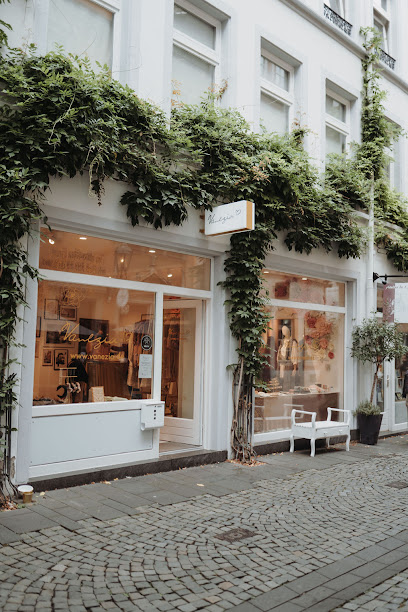
Essential bars & hidden hideouts
Irish Pub Koblenz
Discover the heart of Irish culture in Koblenz at the Irish Pub, where delicious food, drinks, and live entertainment await.
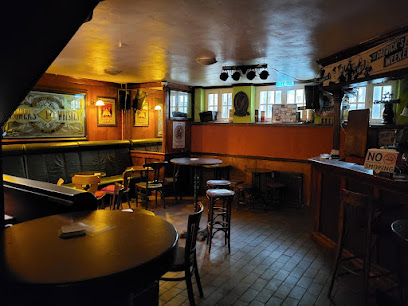
Spökes
Discover Spökes, a vibrant bar and cocktail destination in Koblenz, where delightful drinks and a lively atmosphere await every visitor.
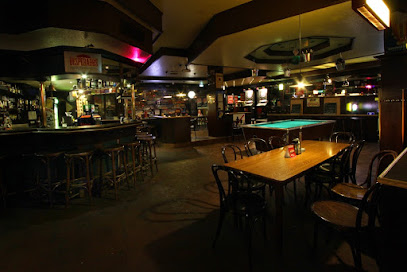
Winninger Weinstuben
Experience the best of Koblenz at Winninger Weinstuben, a cozy wine bar offering exquisite local wines and delightful regional dishes.
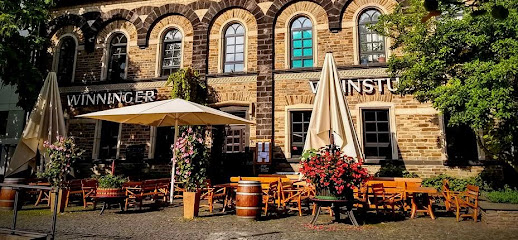
Zum Schiffchen
Experience the warmth of Koblenz at Zum Schiffchen, where delicious food meets a vibrant pub atmosphere in a historic setting.
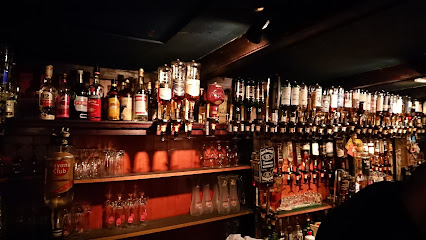
Daddy-O's - Koblenz
Dive into the vibrant nightlife of Koblenz at Daddy-O's, where expertly crafted cocktails meet a lively atmosphere for an unforgettable evening.
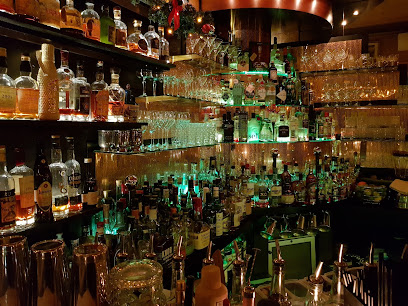
Mephisto - Koblenz
Discover the energetic vibe of Mephisto in Koblenz, a premier pub offering delicious food, refreshing drinks, and an unforgettable local experience.
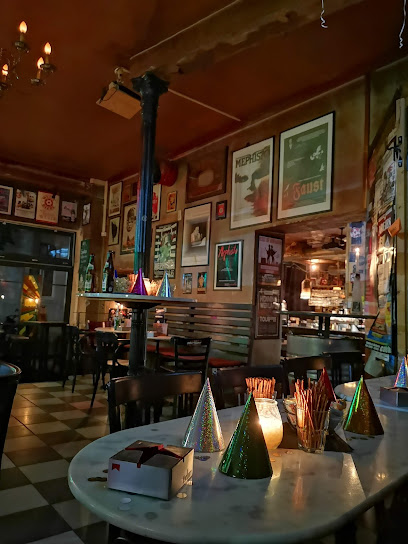
BackStage Koblenz
Discover the energetic nightlife of BackStage Koblenz, a lively bar and pub perfect for socializing and enjoying local drinks.
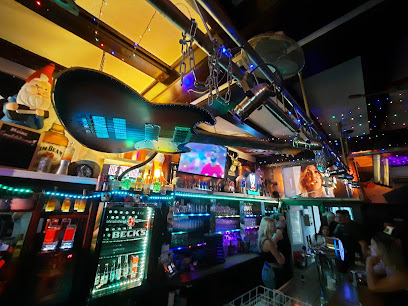
Piper's Corner Celtic Irish Pub - Koblenz
Experience the warmth of Ireland at Piper's Corner Celtic Irish Pub in Koblenz, where great food, drinks, and live music await.
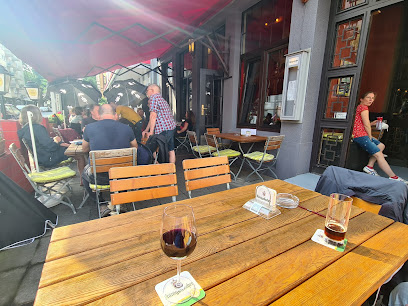
Gecko Lounge
Discover the vibrant Gecko Lounge in Koblenz, where eclectic ambiance meets expertly crafted cocktails, perfect for a night out.
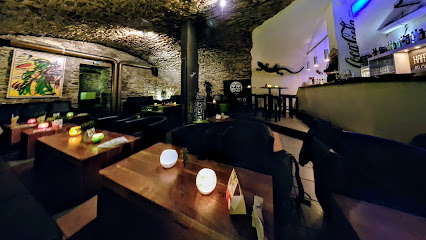
EXCALIBUR - The Rock Cafe
Discover the vibrant nightlife at EXCALIBUR - The Rock Cafe, a unique blend of cocktails and rock music in the heart of Koblenz.
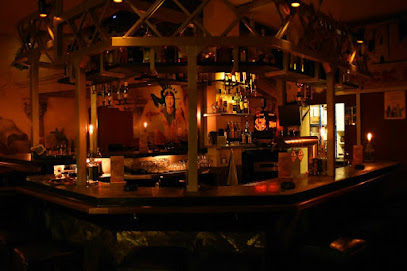
Sugar Ray’s Koblenz
Discover the lively atmosphere and diverse drink selection at Sugar Ray’s Koblenz, a bar where locals and visitors mingle over great cocktails and good vibes.
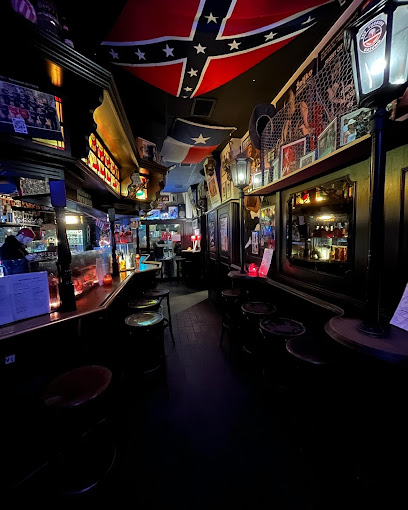
Shotz Koblenz
Discover the lively atmosphere and diverse drink selection at Shotz Koblenz, a must-visit bar in the heart of Germany's charming Altstadt.
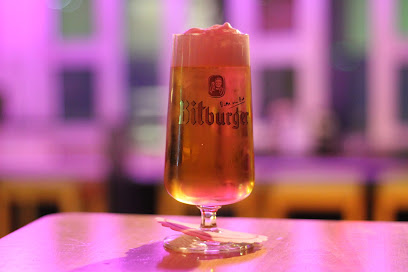
Public Lounge Bar - Koblenz
Experience vibrant nightlife at The Public Lounge Bar in Koblenz, where great drinks and a lively atmosphere meet.
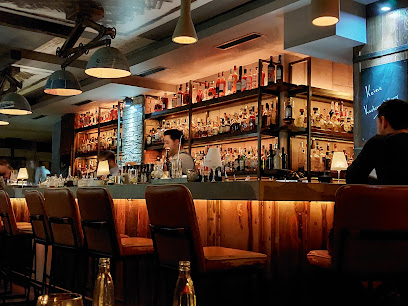
Zeitlos
Experience the vibrant nightlife of Koblenz at Zeitlos, a lively bar offering an extensive drink menu and a welcoming atmosphere for all.
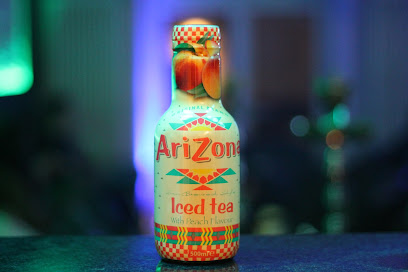
McCoy - The Highball Ltd.
Discover McCoy - The Highball Ltd., Koblenz's premier cocktail bar, where innovative drinks and a vibrant atmosphere create unforgettable experiences.
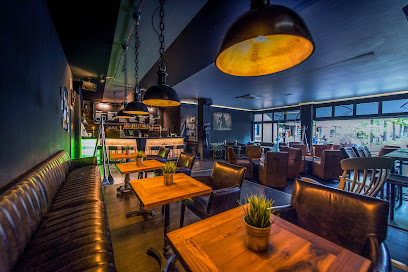
Local Phrases
-
- HelloHallo
[HAH-loh] - GoodbyeAuf Wiedersehen
[owf VEE-der-zayn] - YesJa
[yah] - NoNein
[nine] - Please/You're welcomeBitte
[BIH-tuh] - Thank youDanke
[DAHN-kuh] - Excuse me/SorryEntschuldigung
[ent-SHOOL-dee-goong] - How are you?Wie geht es dir?
[vee gayt es deer] - Fine. And you?Gut. Und dir?
[goot oont deer] - Do you speak English?Sprechen Sie Englisch?
[shpre-khen zee ENG-lish] - I don't understandIch verstehe nicht
[ikh fer-SHTAY-uh nikht]
- HelloHallo
-
- I'd like to see the menu, pleaseIch hätte gerne die Speisekarte, bitte
[ikh HEH-te ge-rnuh dee SHPY-zuh-kahr-tuh, BIH-tuh] - I don't eat meatIch esse kein Fleisch
[ikh EHS-se kine flysh] - Cheers!Prost!
[prohst] - I would like to pay, pleaseIch würde gerne bezahlen, bitte
[ikh VOOR-duh ge-rnuh buh-ZAH-len, BIH-tuh]
- I'd like to see the menu, pleaseIch hätte gerne die Speisekarte, bitte
-
- Help!Hilfe!
[HEEL-fuh] - Go away!Geh weg!
[gay vehg] - Call the Police!Rufen Sie die Polizei!
[ROO-fen zee dee poh-lee-TSY] - Call a doctor!Rufen Sie einen Arzt!
[ROO-fen zee I-nen ahrsht] - I'm lostIch habe mich verirrt
[ikh HAH-buh mikh feh-REERT] - I'm illIch bin krank
[ikh been krahngk]
- Help!Hilfe!
-
- I'd like to buy...Ich möchte gerne kaufen...
[ikh merkh-tuh ge-rnuh KOW-fen] - I'm just lookingIch schaue nur
[ikh SHOW-uh noor] - How much is it?Wie viel kostet es?
[vee feel KOH-stet es] - That's too expensiveDas ist zu teuer
[dahs ist tsoo TOY-er] - Can you lower the price?Können Sie den Preis senken?
[KER-nen zee den price ZEN-ken]
- I'd like to buy...Ich möchte gerne kaufen...
-
- What time is it?Wie spät ist es?
[vee SHPAYT ist es] - It's one o'clockEs ist ein Uhr
[es ist iyn oor] - Half past (10)Halb (10)
[hahlp (tsayn)] - MorningMorgen
[MOR-gen] - AfternoonNachmittag
[NAKH-mee-tahg] - EveningAbend
[AH-bent] - YesterdayGestern
[geh-shtern] - TodayHeute
[HOY-tuh] - TomorrowMorgen
[MOR-gen] - 1Eins
[ayns] - 2Zwei
[tsvay] - 3Drei
[dry] - 4Vier
[feer] - 5Fünf
[foonf] - 6Sechs
[zeks] - 7Sieben
[zee-ben] - 8Acht
[ahkt] - 9Neun
[noyn] - 10Zehn
[tsayn]
- What time is it?Wie spät ist es?
-
- Where's a/the...?Wo ist ein/der...?
[voh ist iyn/dehr] - What's the address?Was ist die Adresse?
[vahs ist dee ah-dreh-suh] - Can you show me (on the map)?Können Sie mir zeigen (auf der Karte)?
[KER-nen zee meer tsey-gen (ouf dehr KAHR-teh)] - When's the next (bus)?Wann kommt der nächste (Bus)?
[vahn kohmt dehr NEHK-stuh (boos)] - A ticket (to ....)Eine Fahrkarte (nach ....)
[IY-nuh FAHR-kahr-teh (nahkh)]
- Where's a/the...?Wo ist ein/der...?
History of Koblenz
-
Koblenz, known as Confluentes during the Roman era, was founded around 8 BC by the Romans at the confluence of the Rhine and Moselle rivers. It served as a strategic military post and a significant trade hub. Remnants of Roman walls and fortifications can still be seen in the city, reflecting its ancient past.
-
During the Middle Ages, Koblenz grew around the Ehrenbreitstein Fortress, a key defensive structure. The city became an important religious center with the establishment of the Basilica of St. Castor in the 9th century. Its strategic location made it a frequent battleground during various conflicts, including the Thirty Years' War.
-
In the late 18th century, Koblenz fell under French control during the Napoleonic Wars. The city was incorporated into the French Republic and later the French Empire. This period brought significant administrative changes and modernization efforts to the city’s infrastructure.
-
After the defeat of Napoleon, Koblenz became part of the Kingdom of Prussia in 1815. The Prussian era saw extensive urban development, including the construction of the Koblenz Fortress and the establishment of the Rhine Province. The city became an important administrative and military center for Prussia.
-
Koblenz suffered heavy bombings during World War II, resulting in significant destruction. Post-war, the city underwent extensive reconstruction, blending modern architecture with preserved historical structures. The rebuilding efforts restored many historical sites, including the Deutsches Eck (German Corner) where the rivers Rhine and Moselle meet.
-
In 2002, the Upper Middle Rhine Valley, including parts of Koblenz, was designated a UNESCO World Heritage Site. This recognition highlights the region's historical and cultural significance, preserving its scenic landscapes, castles, and ancient towns. Koblenz's rich history and picturesque setting continue to draw visitors from around the world.
Koblenz Essentials
-
Koblenz is conveniently accessible by various modes of transportation. The nearest major airport is Frankfurt International Airport, located about 112 kilometers away. From there, you can take a direct train to Koblenz, which takes approximately 1.5 hours. Alternatively, you can fly into Cologne Bonn Airport or Düsseldorf Airport, both of which offer train connections to Koblenz. The city is also well-connected by German Autobahns A3, A48, and A61 for those traveling by car.
-
Koblenz has an efficient public transportation system that includes buses and trains. The Koblenz Hauptbahnhof (main train station) serves as the central hub for regional and long-distance trains. Local buses operated by evm Verkehrs GmbH cover most parts of the city. Taxis are readily available and can be hailed on the street or booked via phone. For a more scenic mode of transport, consider taking a boat ride along the Rhine or Moselle rivers.
-
The official currency in Germany is the Euro (EUR). Credit and debit cards are widely accepted in most hotels, restaurants, and shops, but smaller establishments might prefer cash. ATMs are plentiful throughout the city, and it is advisable to have some cash on hand for smaller purchases or in case you visit rural areas.
-
Koblenz is generally a safe city for tourists. However, as with any travel destination, it's important to stay vigilant. Avoid poorly lit areas at night and be cautious in crowded places to protect yourself from pickpocketing. Areas around the main train station can be a bit dodgy late at night, so it's best to stay alert. Always keep your belongings secure and be aware of your surroundings.
-
In case of an emergency, dial 112 for immediate assistance. This number connects you to police, fire services, and medical emergencies. Koblenz has several hospitals, including the Gemeinschaftsklinikum Mittelrhein. Pharmacies (Apotheken) are plentiful, and some offer 24-hour service. It's recommended to have travel insurance that covers medical emergencies.
-
Fashion: Do dress smart-casual, which is generally acceptable for most occasions. Don't wear overly casual clothing in fine dining settings. Religion: Do respect religious sites by dressing modestly and keeping noise to a minimum. Public Transport: Do validate your ticket before boarding trains and buses. Don't forget to offer your seat to elderly passengers. Greetings: Do greet people with a firm handshake. Don't use first names unless invited to do so. Eating & Drinking: Do try local dishes like Sauerbraten and Riesling wine. Don't leave a tip on the table; instead, hand it directly to the server.
-
To experience Koblenz like a local, visit the weekly farmers' markets held at various locations throughout the city. These markets offer fresh produce, local cheeses, and meats. Engage with locals at a traditional wine tavern (Weinstube) to learn about the region's famous wines. Take a leisurely walk along the Deutsches Eck, where the Rhine and Moselle rivers meet, and explore the Ehrenbreitstein Fortress for panoramic views of the city. Don't miss the opportunity to attend local festivals such as the Koblenz Summer Festival or the Rhine in Flames event.
Trending Landmark in Koblenz
-
Deutsches Eck
-
Ehrenbreitstein Fortress
-
Stolzenfels Castle
-
Schloss Koblenz
-
Konrad-Adenauer-Ufer
-
Seilbahn Koblenz - Talstation
-
Rhein-Mosel-Halle
-
Schängel Fountain
-
Burg Lahneck
-
Memorial of German Unity
-
Liebfrauenkirche (Church of Our Lady)
-
Wehrtechnische Studiensammlung Koblenz
-
Basilica of St. Castor
-
Baldwin Bridge, Koblenz
-
History Column
Nearby Cities to Koblenz
-
Things To Do in Bonn
-
Things To Do in Cologne
-
Things To Do in Frankfurt
-
Things To Do in Echternach
-
Things To Do in Vianden
-
Things To Do in Grevenmacher
-
Things To Do in Dusseldorf
-
Things To Do in Clervaux
-
Things To Do in Diekirch
-
Things To Do in Aachen
-
Things To Do in Spa
-
Things To Do in Remich
-
Things To Do in Wiltz
-
Things To Do in Essen
-
Things To Do in Heidelberg















